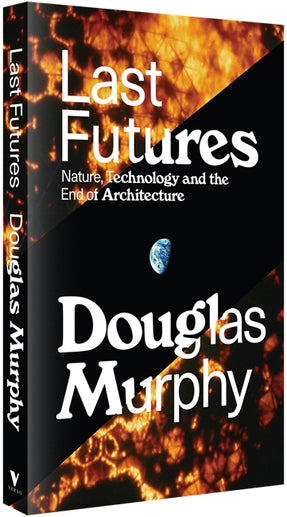Paperback
+ free ebook

+ free ebook
+ free ebook
Whatever happened to the last utopian dreams of the city?
In the late 1960s the world was faced with impending disaster: the height of the Cold War, the end of oil, and the decline of great cities throughout the world. Out of this crisis came a new generation of thinkers, designers and engineers who hoped to build a better future, influenced by visions of geodesic domes, walking cities, and a meaningful connection with nature.
In this brilliant work of cultural history, architect Douglas Murphy traces the lost archeology of the present-day through the works of thinkers and designers such as Buckminster Fuller, the ecological pioneer Stewart Brand, the Archigram architects who envisioned the Plug-In City in the '60s, as well as co-operatives in Vienna, communes in the Californian desert, and protesters on the streets of Paris. In this mind-bending account of the last avant garde, we see not just the source of our current problems but also some powerful alternative futures.
No one warns you that when you get old eras that you lived through are, to the next generation, history. And it is salutory to have one of the wilder fringes of that history recounted with the acuity, sympathy and fluency Douglas Murphy brings to it. The cast is extraordinary: oddballs, philosophers, seers—and a few frauds.
In Last Futures, such one-time commonplaces as three day weeks, the elimination of labour, geodesic domes, walking cities, space colonies and industrialised housing are removed from dimwitted ‘where’s my jetpack’ nostalgia and put back into history. In so doing, Douglas Murphy performs the useful service of making clear when the ideas of the unrealised futures of the 1960s and 1970s were stupid and wasteful, and when they were exceptionally smart—serious solutions to problems we still haven’t solved, and problems we seem intent on making considerably worse. Last Futures is the Silent Running to contemporary architecture’s The Fountainhead.
A fluent, chronological narrative in which oddities from the recent past form sequences in an unfolding drama … Murphy deploys his storytelling with great effect.
Murphy tells the story of this counter-revolution pithily and well … A fresh and haunting way of explaining what happened to the radical ’60s and ’70s as a whole, in Murphy’s view quite possibly the last chance the west had of creating a decent and environmentally sustainable society.
Provocative and compelling.
Murphy’s chief virtue is the faculty with which he connects the dots between various, seemingly unconnected developments in architecture and theory with the ecological, financial, and military crises of an earlier era, holding a mirror onto our own anxious epoch of globalized precarity labor and anthropogenic climate change.
Murphy outlines both some well known and some intriguingly novel suggestions for why the enthusiasm for ‘omni-infrastructural’ utopian frames went away…[Last Futures’s] motley quality is in no way a fault of Murphy’s approach, but rather a real advantage of his method as a cultural historian. A strength of Murphy’s book is that he depicts both the general outlines and some of the juiciest details of these complex historical moments without distilling them into a deceptively linear chronology or a progression of mere styles.
Last Futures is to the end of mid century experimentalism what the Zapruder film is to the death of Kennedy: a weird and gripping replay, full of period grain, each frame posing questions about whether things could have been played our differently.